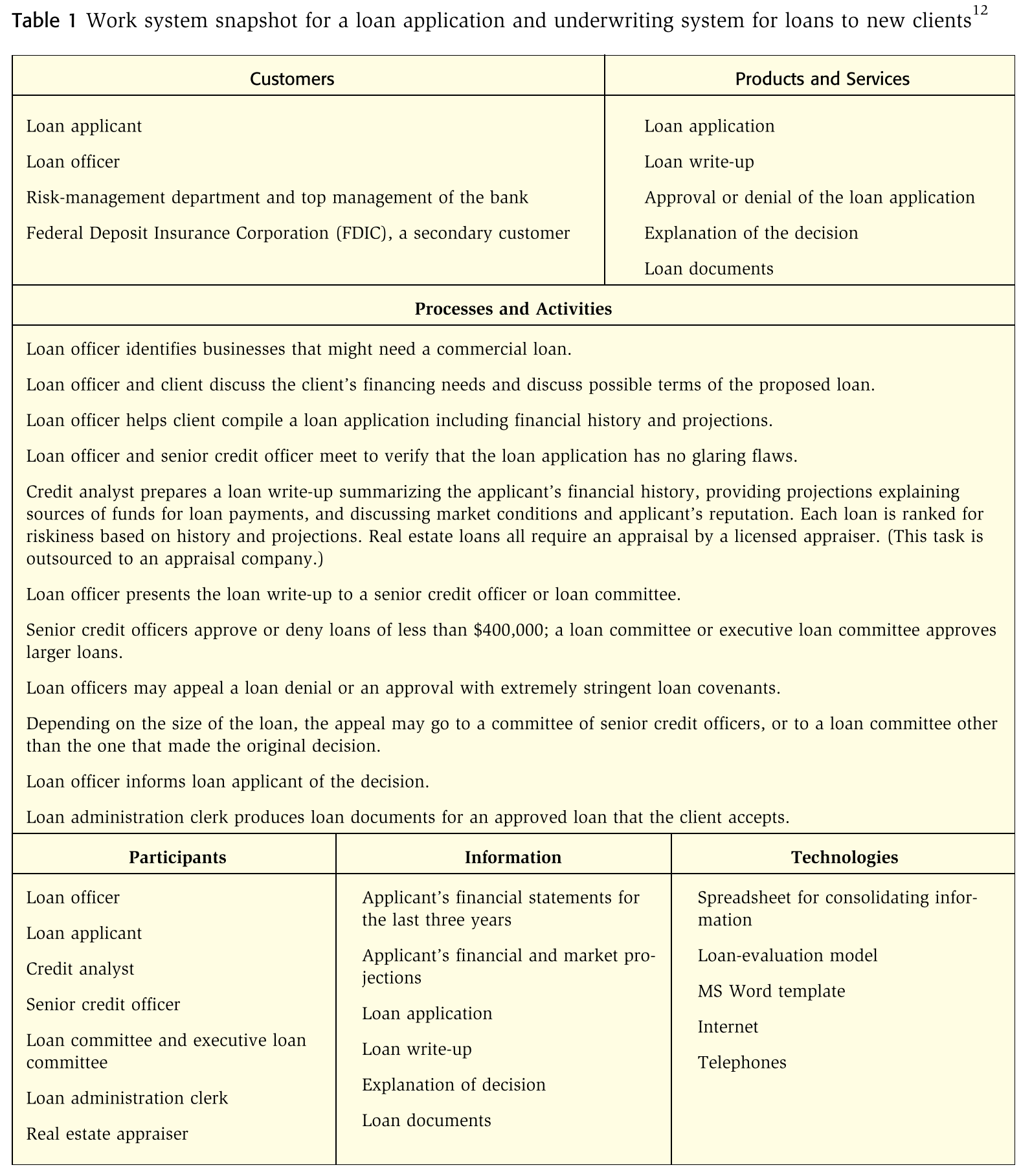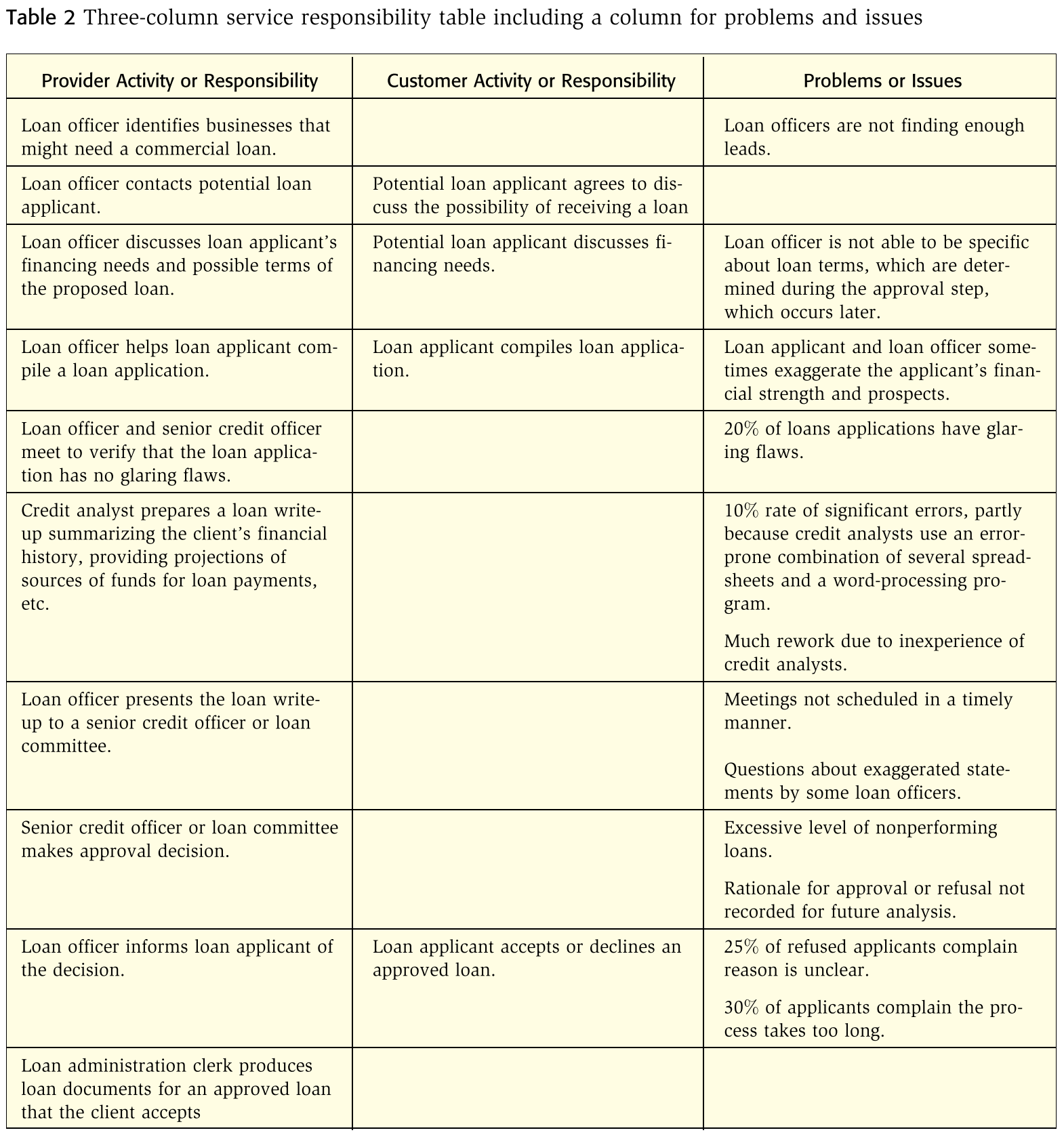This paper presents three interrelated frameworks as a first attempt to define the fundamentals of service systems.
- The work system framework uses nine basic elements to provide a system-oriented view of any system that performs work within or across organizations. Service systems are work systems.
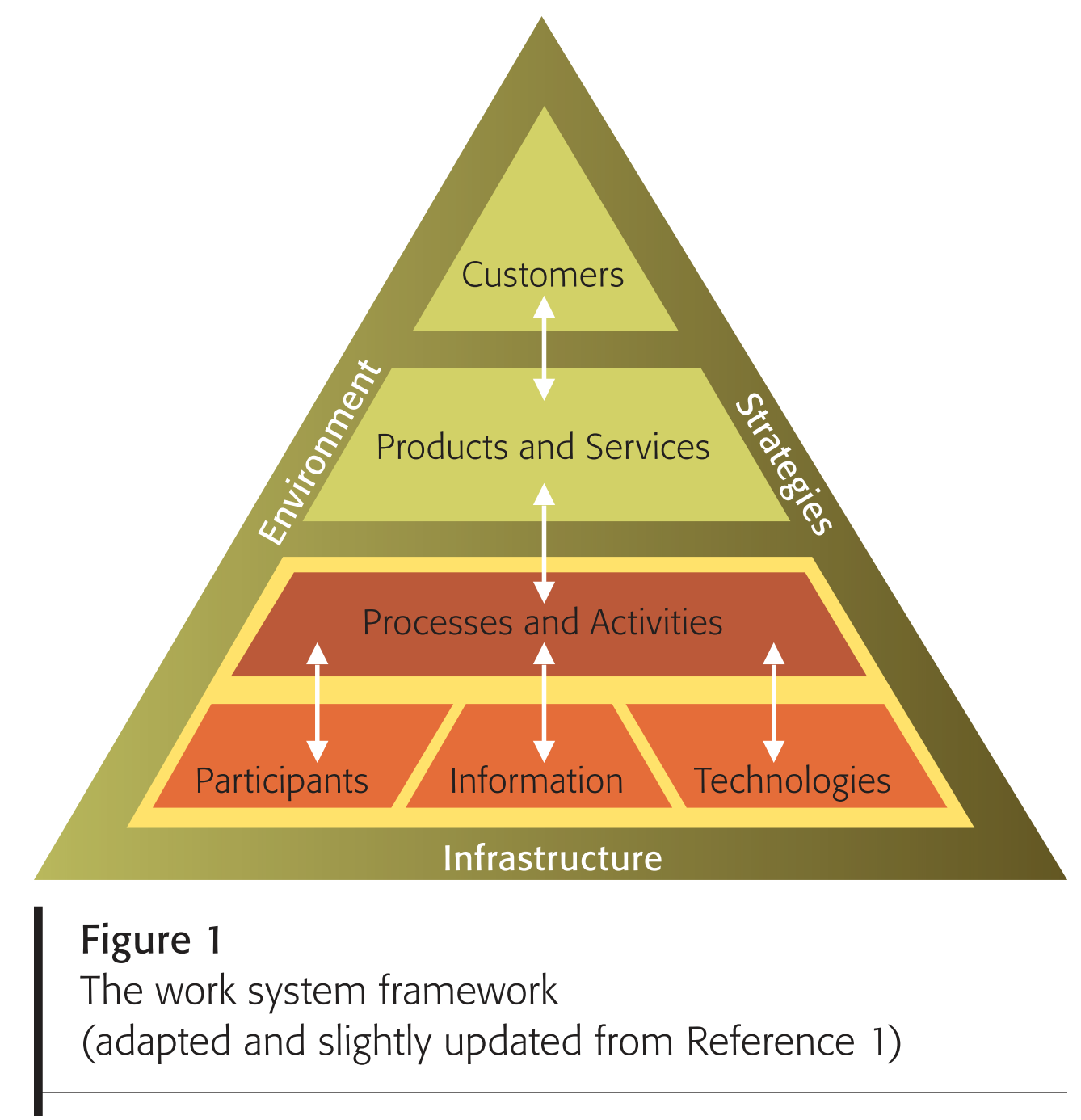
- The service value chain framework augments the work system framework by introducing functions that are associated specifically with services. It presents a two-sided view of service processes based on the common observation that services are typically coproduced by service providers and customers.
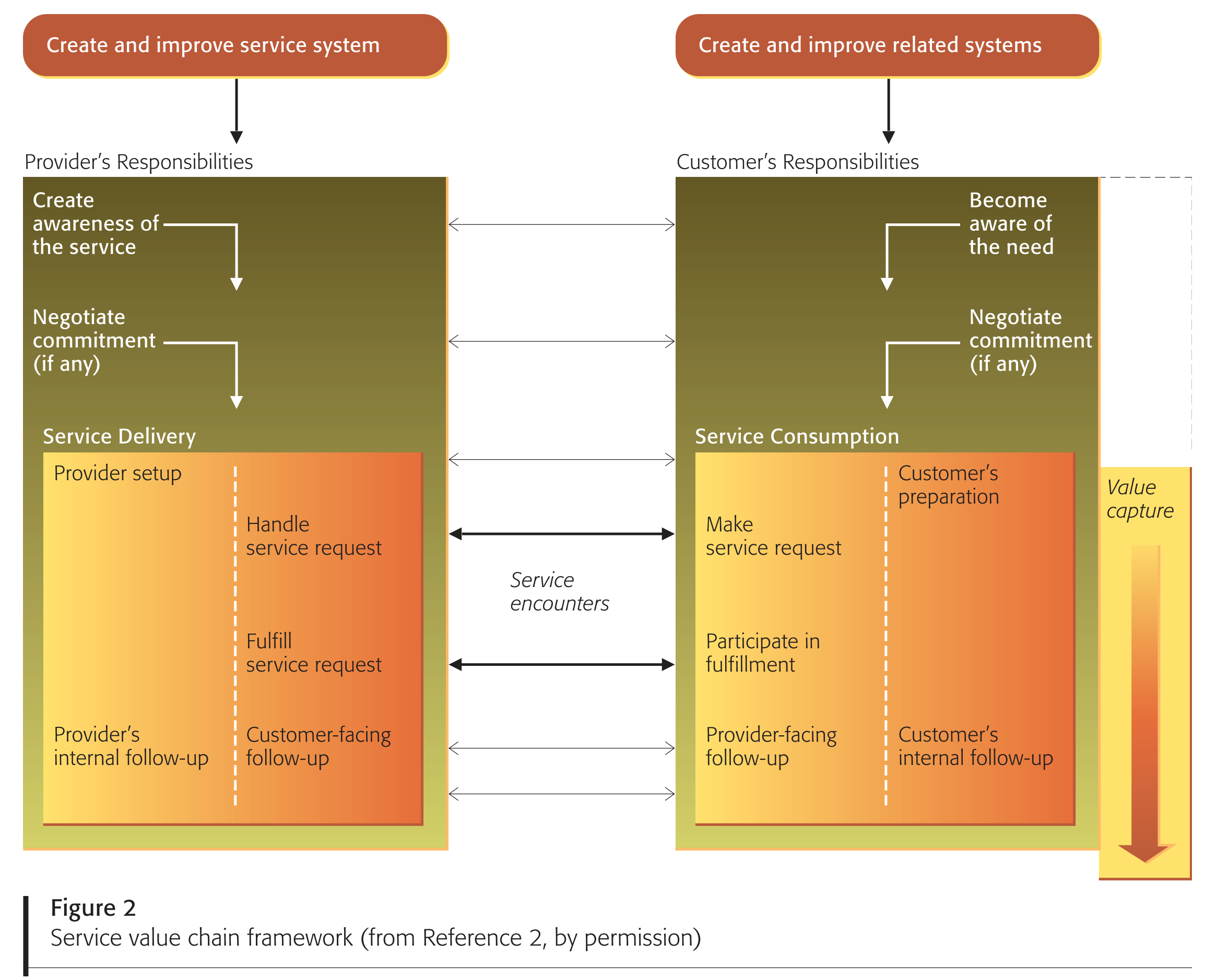
- The work system life cycle model looks at how work systems (including service systems) change and evolve over time. It treats the life cycle of a system as a set of iterations involving planned and unplanned change.
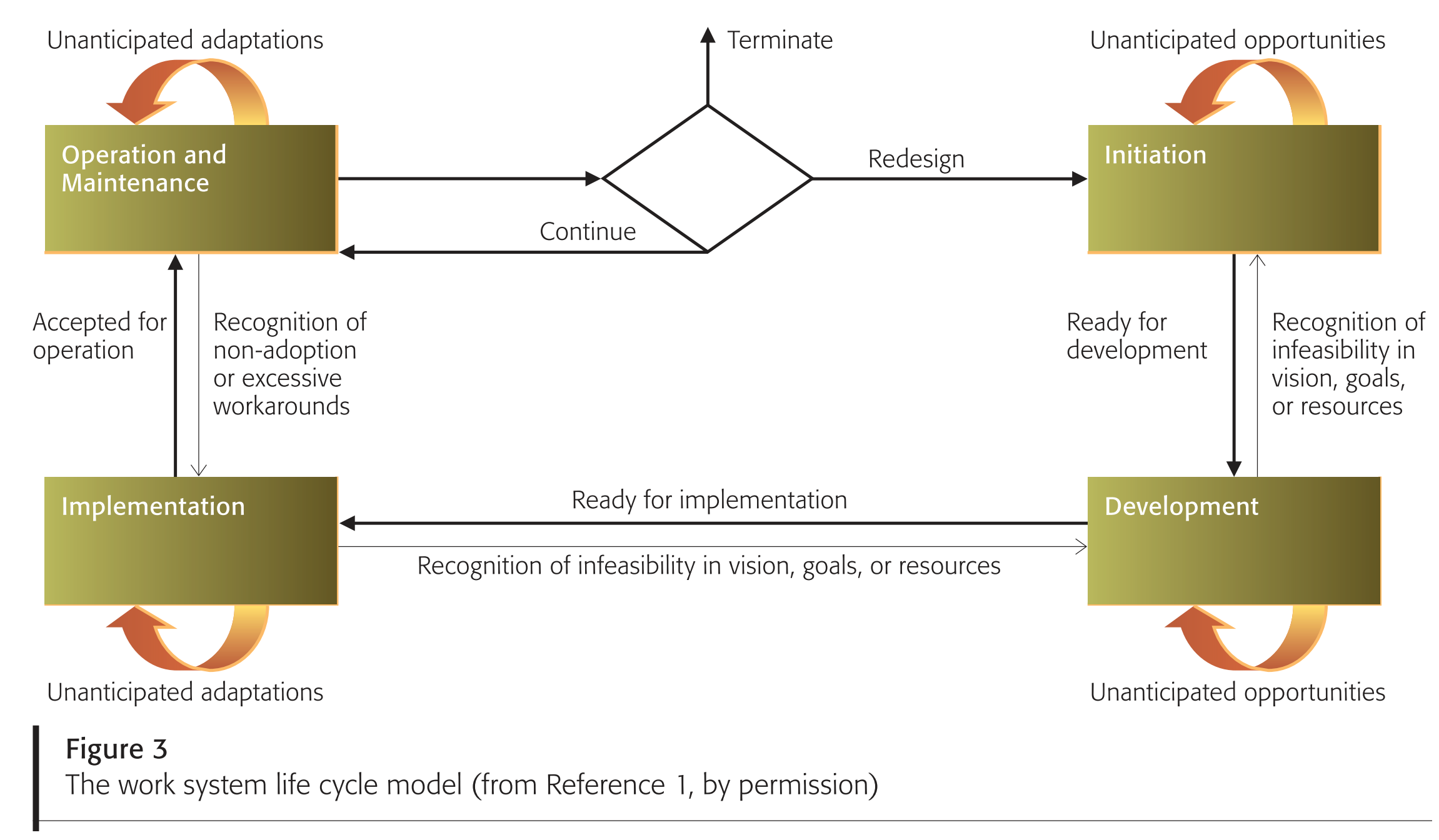
This paper uses two examples, one largely manual and one highly automated, to illustrate the potential usefulness of the three frameworks, which can be applied together to describe, analyze, and study how service systems are created, how they operate, and how they evolve through a combination of planned and unplanned change.
